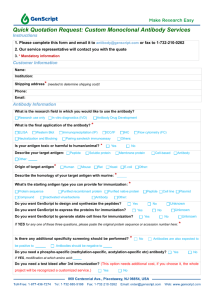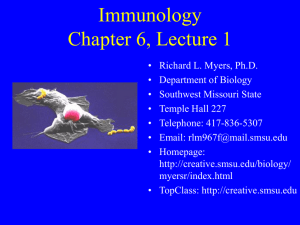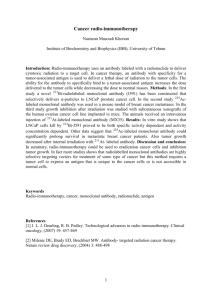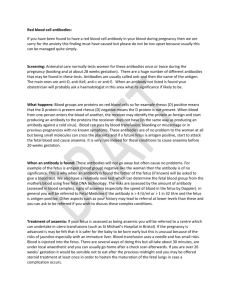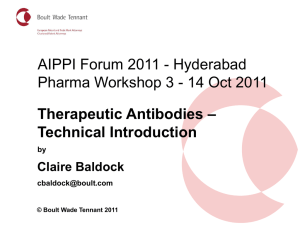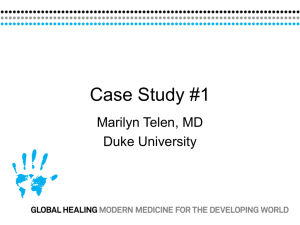Immunological Tests
advertisement
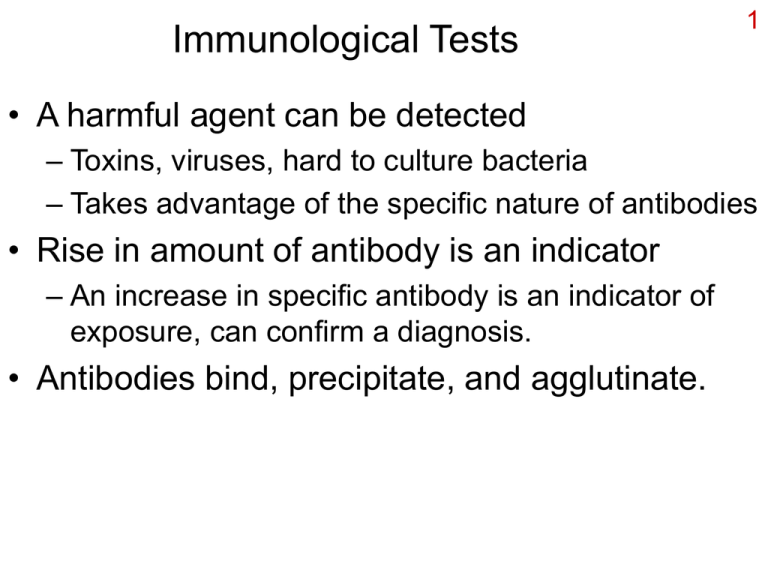
Immunological Tests 1 • A harmful agent can be detected – Toxins, viruses, hard to culture bacteria – Takes advantage of the specific nature of antibodies • Rise in amount of antibody is an indicator – An increase in specific antibody is an indicator of exposure, can confirm a diagnosis. • Antibodies bind, precipitate, and agglutinate. Precipitation tests 2 • When sufficient antigen and antibody molecules interact, they precipitate out of solution – Too few antigen molecules, little ppt. – Too many, agn-aby cross links not made. • Examples – immunodiffusion: antibody and antigen react in agar to make ppt band or ring. – Immunoelectrophoresis: complex mixture of antigens separated, then reacted with antibody. Immunoelectrophoresis http://www.bio.txstate.edu/~micro/IEP%20%2204.jpg 3 Agglutination • Measuring about of antibody in patient’s serum – Dilute serum serially (usually 1:2) – Mix with known antigen. Clumping will be visible if antibody is present. When antibody is too dilute, clumping no longer seen. – The amount of dilution to Blood typing: yes/no produce a negative test: example of • Titer. agglutination classes.midlandstech.com/.../chap18/lecture3.htm 4 Agglutination-2 5 • Identifying pathogens – Known antibody against the pathogen is attached to latex beads. – Mixing latex with bacterium produces clumping http://www.medicine.uiowa.edu/cme/clia/i mages/testID11/Figure01.jpg Commonly used for quick tests to identify staph, strep, many others. Fluorescent antibody tests • Specific antibody attached to fluorescent dye. antibody binds to antigens, Use of fluorescent scope reveals positive cells. 6 https:/.../Web_Version/chapters/c hapter_23.htm Very valuable tool in specific identification of pathogenic microbes of all kinds. This is DFA (direct fluor. Aby.). In IFA, a fluorescent antibody against another antibody is used. Enzyme linked immuno sorbent assay http://www.biosystemdevelopment.com/site_graphics/elisa.jpg 7 ELISA-2 8 • This technique can be used to detect antibody or antigen. • Attach antigen to the plastic – Add serum from patient; antibodies attach. – Antibodies detected with an enzyme-linked antibody against human antibodies. • Attach known antibody to plastic – antigen added, binds to antibody. – Second, enzyme-linked antibody binds to antigen.
